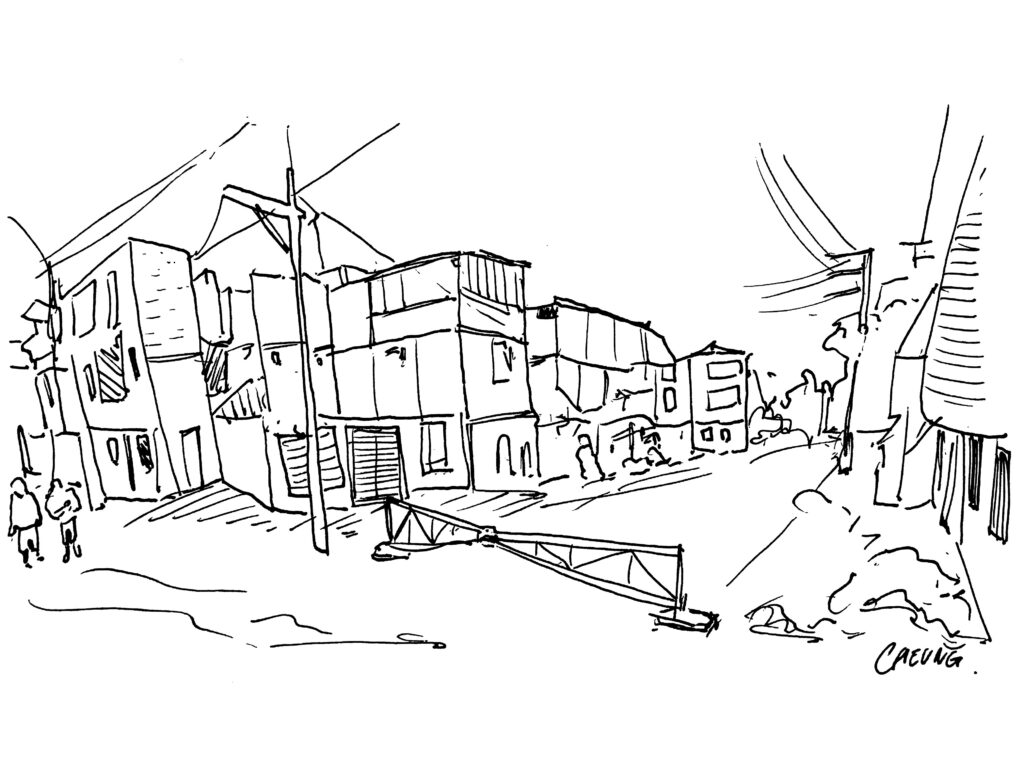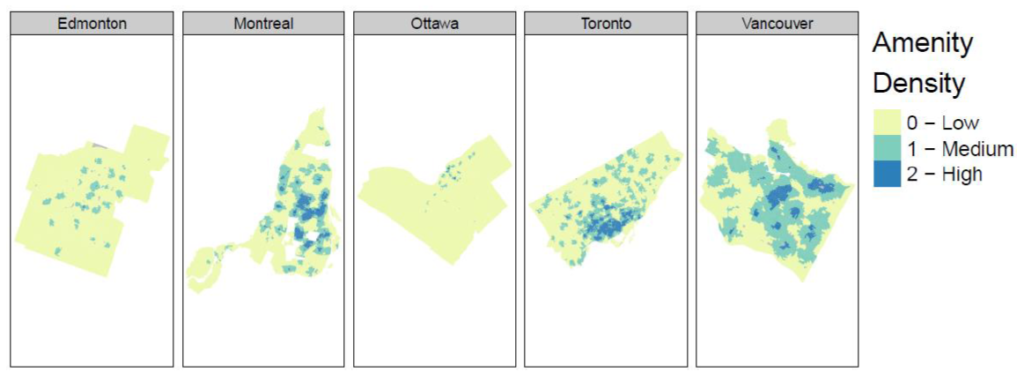
Residential Micro-Segregation via Street Barriers in Lima, Peru

In this project, I study the relationship between residential micro-segregation, in the form of built barriers to urban mobility, and social capital. Through the case of Lima, Peru, I propose two hypotheses. First, micro-segregation cuts across socioeconomic and ethnoracial boundaries in recently developed residential areas of highly unequal cities. Second, micro-segregation negatively impacts the development of social capital and sentiments of community. Ultimately, I argue that barriers to mobility express a form of social closure defined primarily by location rather than by preexisting social boundaries.
Visit the Urban Genome Project’s website for additional details about the study.
The Spatiality of Trust

This study examines two competing approaches to the relationship between the urban environment and social trust. On the one hand, sociologists since the Chicago School have argued that increasing urban density leads to social disintegration. Given the centrality of trust for social ties, this would translate in lower levels of trust. On the other hand, since Jane Jacobs onward, urban scholars have defended density as a desirable feature that fosters social cohesion within and across neighbourhoods. This would suggest finding higher levels of trust in denser areas. I draw on GIS and survey data to better account for the composition and configuration of the built environment and its relationship with social trust. My preliminary findings suggest that, indeed, urban density positively affects trust, but this occurs in some contexts and the relationship is mediated by several other factors including the individual characteristics of residents.
See the University of Toronto’s Institute on Municipal Finance and Governance website for a presentation with additional details about this project.
Recent Publications
- Calderón-Figueroa, Fernando. 2024. “Residential Micro-Segregation and Social Capital in Lima, Peru.” Land 13(1):113. doi: 10.3390/land13010113
- Calderón-Figueroa, Fernando, Daniel Silver, and Olimpia Bidian. “The Dilemmas of Spatializing Social Issues.” Socius 8:1-20. doi:10.1177/23780231221103059
- Olson, Alexander W., Fernando Calderón-Figueroa, Olimpia Bidian, Scott Sanner, and Daniel Silver. 2021. “Reading the City through its Neighbourhoods: Deep Text Embeddings of Yelp Reviews as a Basis for Determining Similarity and Change.‘” Cities 110:1-14. doi:10.1016/j.cities.2020.103045
- Olson, Alexander W., Kexin Zhang, Ronen Yakubov, Scott Sanner, Daniel Silver, Daniel Arribas-Bel and Fernando Calderón-Figueroa. 2020. “Classification and Regression via Integer Optimization for Neighbourhood Change.” Geographical Analysis 53(2):192-212. doi:10.1111/gean.12252
- Silver, Daniel, Zack Taylor, and Fernando Calderón-Figueroa. 2020. “Populism in the City: The Case of Ford Nation.” International Journal of Politics, Culture, and Society 33(1):1-21. doi:10.1007/s10767-018-9310-1
Media Presence
- Florida, Richard. 2019. “Ford Nation: How Populism Took Hold in Toronto.” CityLab, January 17.
- Calderón-Figueroa, Fernando, Zack Taylor, and Daniel Silver. 2019. “Cosmopolitan Populism? Making Sense of Ford Nation.” [Blog] The New Spirit, January 24.
